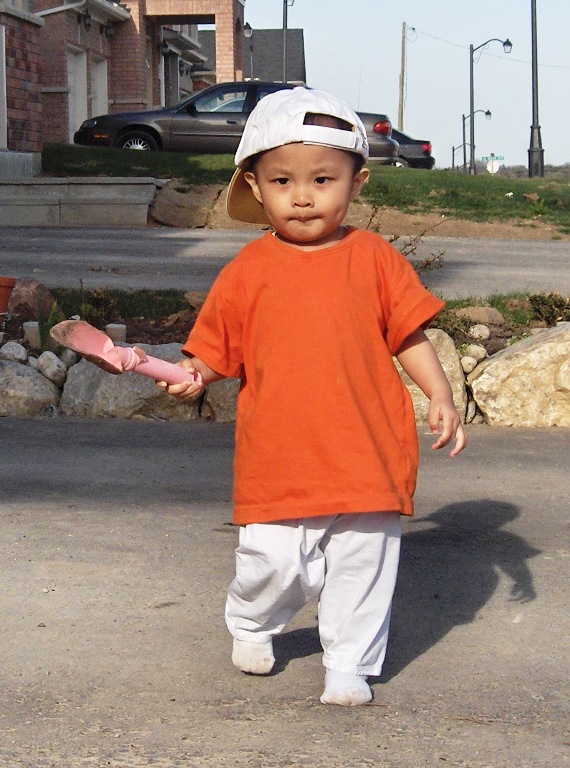|
Thơ
| Nội cỏ
của
thiên đường | Album | Passage Eden | Chuyện văn
| Dịch
thuật | Dịch ngắn | Đọc sách | Độc giả
sáng tác | Giới
thiệu | Góc
Sài gòn
| Góc Hà nội
| Góc
Thảo Trường
Lý thuyết phê bình | Tác giả Việt | Tác giả ngoại | Tác giả & Tác phẩm | Tạp ghi | Text Scan | Tin văn vắn | Thời sự văn học | Thư tín | Phỏng vấn | Phỏng vấn dởm | Phỏng vấn ngắn | Giai thoại | Potin | | Nhật ký Tin Văn | Linh tinh | Thống kê | Viết ngắn | Tưởng niệm | Tiểu thuyết | Sáng tác | Sách mới xuất bản | Gấu nhà văn |
|
|
  Hết tuyết rồi! NYRB số 1 Tháng Năm: Tibet: Hòa bình của Nghĩa Địa  Vaclav Havel, André
Glucksmann, Yohei Sasakawa, EI Hassan Bin Talal, Frederik Willem de
Klerk, and
Karel Schwarzenberg
The recent events in Vaclav Havel is a former
president of the Czech Republic, Andre Glucksmann is a French
philosopher,
Yohei Sasakawa is a Japanese philanthropist, El Hassan Bin Talal is
President
of the Arab Thought Forum and President Emeritus of the World
Conference of
Religions for Peace, Frederik Willem de Klerk is a former president of
South
Africa, and Karel Schwarzenberg is Foreign Minister of the Czech
Republic.
The Cùng số báo:
Bush: Tổng Thống Khủng Bố. Tổng Thống Tra Tấn  The New York Review NYRB In these last weeks of
turbulent events, the single most significant has not been the
financial
crisis, not the fall of a governor, not the passing of the fifth year
of the
war without end in
That was what President Bush did in early March when he vetoed legislation prohibiting the use of brutal methods of interrogation by American intelligence agents. His action was quickly overtaken by other news. But in its redefinition of American values-of the American character-it had profound implications. I grew up believing that Americans did not torture prisoners, as Hitler's and Stalin's agents did. There were rogue episodes of American brutality, but to make torture a national policy? Unthinkable. No one should be in any doubt that torture was what President Bush had in mind. No one should be fooled by Orwellian talk of "enhanced interrogation techniques." What Congress sought to outlaw was such things as hanging prisoners from the ceiling by their wrists, beating them, depriving them of food and water, preventing them from sleeping for days, keeping them in freezing temperatures, using electric shocks on them, and subjecting them to water boarding - an almost - drowning technique that was used by the Inquisition and by Japanese soldiers who were successfully prosecuted for it by the United States after World War II Torture. All such methods are prohibited by the Army Field Manual. They are barred by international conventions that the In announcing the veto, Mr. Bush said that "the program" -his euphemistic term for interrogation methods used in secret CIA prisons at "black sites" on foreign soil-had produced information that exposed planned terrorist attacks. He made specific claims: that "the program helped us stop a plot to strike a US Marine camp in Senator John D. Rockefeller IV, the chairman of the Senate Intelligence Committee, who has sometimes been criticized for being too easy on the President, said of Mr. Bush's claims: I have heard nothing to suggest that information obtained from enhanced interrogation techniques has prevented an imminent terrorist attack. And I have heard nothing that makes me think the information obtained from these techniques could not have been obtained through traditional interrogation methods used by military and law enforcement interrogators. On the other hand, I do know that coercive interrogations can lead detainees to provide false information. The corrupting effects of the adoption of torture as an American practice have been widespread. First of all, on the law. The Justice Department's Office of Legal Counsel, which makes binding interpretations of the law for the federal government, issued secret opinions defining torture away to the vanishing point, saying it must be equivalent in pain to "organ failure, impairment of bodily function, or even death" -and adding that Congress could not stop the President from ordering the use of torture. (The whole idea of secret official opinions defining the law should be anathema in a free republic, one that has boasted from the beginning of having a government of laws, not men. Secret laws are the hallmark of tyrannies.) The Justice Department opinions were not abstractions. They were immediately taken up by political appointees at the Pentagon and led directly to the torture of dozens of prisoners and the killing of some at Bagram Air Base in Torture has had corrupting effects on our politics, too. Most Republicans in Congress have defended President Bush's claim of the right to use such methods, evidently as a matter of political solidarity. The corruption has even touched the man who more than anyone has been a symbol of resistance to torture, John McCain. Senator McCain led Congress in 2005 to pass the legislation reiterating the ban on the military's use of torture. But when it came to extending the ban to intelligence agents in this year's Intelligence Authorization Act, he sided with the President. It was as if he were saying that the North Vietnamese who so cruelly tortured him as a prisoner were war criminals if they were soldiers but not if they were intelligence agents. Language has been corrupted, too. On March 9, the CIA's director of public affairs, Mark Mansfield, said in a letter to the editors of The New York Times that the lawfulness of the agency's interrogation methods "has been confirmed by the Justice Department." In other words, the CIA still relies for legal approval on the politicized department that approved torture in the first place. The devil citing Satan's scripture. George W. Bush can seek his God's mercy for trying to legitimize torture by Americans. But here on earth he cannot escape judgment. For me he will always be the Torture President. But the rest of us do not have to resign ourselves to being a Torture Nation. The Washington Monthly devoted its current issue to the subject of torture as American practice, publishing brief essays by figures across the political spectrum. Colonel Lawrence B. Wilkerson, US Army (Ret.), who was chief of staff to Secretary of State Colin Powell, wrote: We must start now to recognize our crimes and our complicity. We are all guilty, and we must all take action in whatever way we can. Torture and abuse are not American. They are foreign to us and always should be. We need to exorcise them from our souls and make amends. Anthony Lewis April 2, 2008 [NYRB May 1, 2008] Lifetime achievement 'double' for Cynthia Ozick Associated Press "A prodigious
imagination, a relentless intellect, an endless appetite for
investigation and
truth telling: All of these we have come to expect from her work,"
PEN/Nabokov judges Mary Gordon, Brian Boyd and Richard Price wrote in
their
citation.
*"No American writer working today is as close in soul and style to Bernard Malamud as Cynthia Ozick," PEN/Malamud judge Alan Cheuse wrote, "and no American writer working today is more distinctive in everything she does on the page". Peter Ho Davies, whose books include Equal Love, was named a co-winner of the Malamud prize. Ozick is known for an uncompromising artfulness that has won her the rather unenviable reputation as a "writer's writer" - generally a euphemism for high respect combined with very low sales - but her profile has been rising in recent years. Heir to the Glimmering World, her 2004, sold more than 30,000 copies and she was shortlisted alongside Philip Roth, John Updike and Margaret Atwood for the inaugural Man Booker International prize in 2005. Ozick,
nhà văn của nhà văn, làm cú đúp:
Lãnh hai giải thưởng văn học một
đời vì văn chương, sau hai lần xém National Book Award, một lần ăn
National Book Critics.
Giấc mơ dân làng Ding Đọc cuốn tiểu thuyết
của Yan Lianke gây một hiệu quả thần kỳ ở nơi tôi: Cuốn tiểu thuyết,
chính là cái phóng sự mà tôi toan tính viết.
Happy Birthday to U, Maitre! « J'ai passé ma vie
à comprendre pourquoi la haute culture n'a pas pu enrayer la barbarie » Những
thư viện, những viện bảo tàng, những rạp hát, những đại học vẫn có thể
nở rộ dưới bóng mát của những trại cải tạo. Bây giờ chúng ta mới hiểu
ra: văn hoá không làm tăng tính người. Văn hoá còn có thể làm người ta
trở nên vô cảm trước sự khốn cùng của con người.  Một nhà văn 76 tuổi, chỉ còn chờ hai điều: Được quên trước khi chết, hay chết trước khi được quên. A writer aged seventy-six has only two prospects before him: to be forgotten before he dies, or to die before he is forgotten A.K. ....Beckett là một vì quân tử, a gentle man.
Tôi nghĩ, từ này
được người đời phịa ra, ấy là bởi vì có ông. [I think they may have
invented the word for him].... Ông là một người lắng nghe, a listener.
Ông ta lắng nghe đến độ bạn cứ nghĩ mình là con người độc
nhất trên cõi đời...
[Note: Gửi bạn mới quen, qua dòng thơ của VND: Đậu bằng qua giá vũ như ti. NQT]
Notes on Writing and the Nation A DECLARATION OF TCS vs LS Lèm bèm về dòng văn học "Lạc Đường" Era of the Witness: Thời của chứng nhân Gấu vs Hồ Nam Gấu đã từng nói dai nói dài nói mãi về cái lần vô thư viện tình cờ cầm cuốn Ngôn ngữ và Câm lặng, và từ đó, rắp tâm làm trang Tin Văn, nhưng nếu không có sự giúp đỡ của PCL, chủ biên tờ VHNT trên lưới, thì cũng thua. PCL lúc đầu còn mất công đọc bài, đăng bài sau mở hẳn một account cho Gấu tự tung tự tác, cho đến lúc PCL gặp khó khăn về vấn đề server, thì bèn tách ra hoàn toàn. Nay nhân mấy đấng trên Hội Luận nhớ về VHNT, nhưng thực chất, nhớ về chính họ, nhớ cái thuở còn hàn vi, chưa là đại văn hào, cũng một kiểu áo thụng vái nhau, Gấu bèn nhớ về nhớ về nhớ về..... Cũng là một cách hội luận với Hồ Nam, tức là với trong nước!
|
